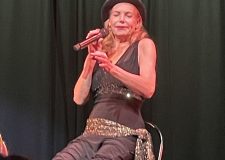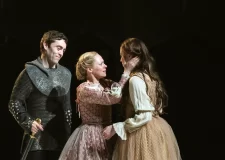AN EXPERIMENT WITH AN AIR PUMP
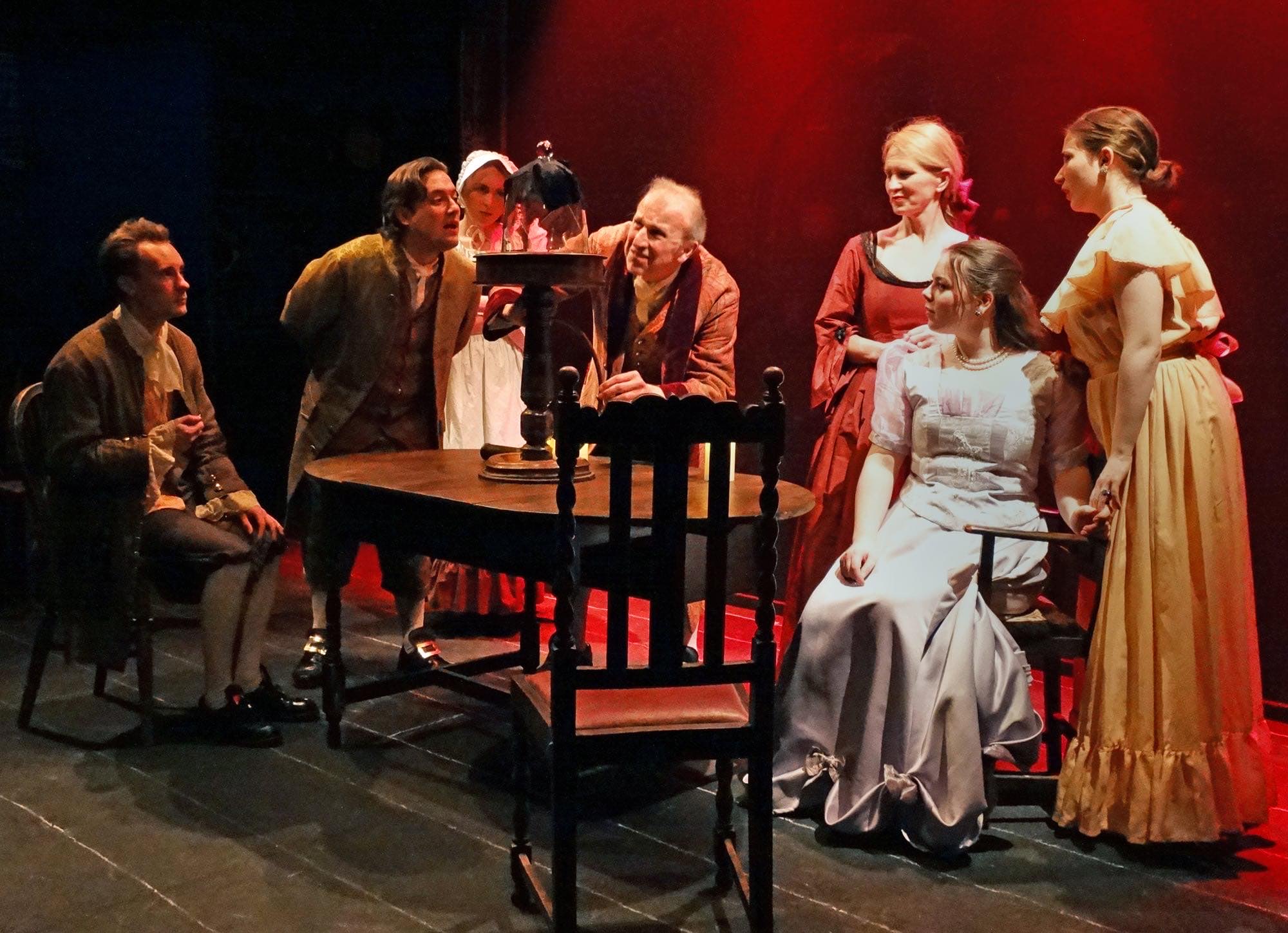
It’s the turn of the century in two parallel ages but we are placed in one house. The play opens in 1799 to find a tableau, beautifully realised, of Joseph Wright of Derby’s candlelit painting An Experiment On A Bird In The Air Pump. Magically the scene comes to life and the bird, a brilliantly effective hologram, is released and with it the first element of tension in a drama that is fraught with argument and angst.
Outside the people are rioting, but inside the assembled group are involved in their own struggles. Move forward 200 years to find a couple, one a scientist and the other a literature academic caught in a argument about scientific ethics. One has a career based on the past, the other a career poised on the brink of manipulating the future.
One cast plays both sets of characters, a conceit that could, in lesser hands, prove confusing. But here in the capable hands of director Sam Chittenden there is no issue, and here her beautifully drilled cast pull the duality off with ease, it’s no mean feat for certain in a play that shifts rapidly from age to age, and from argument to argument.
And the arguments are multiple, science, ethics, beauty, romance, deception, love and emancipation. The overriding theme is perhaps enlightenment, the age of discovery weighed hard against an age where discovery has become so advanced, but also so much in the public domain that ethics have become an issue for the masses and not just for the few.
The drama is to say the least complex but it is equally compelling and the cast, charged with their duality of roles, deliver it with confident style.
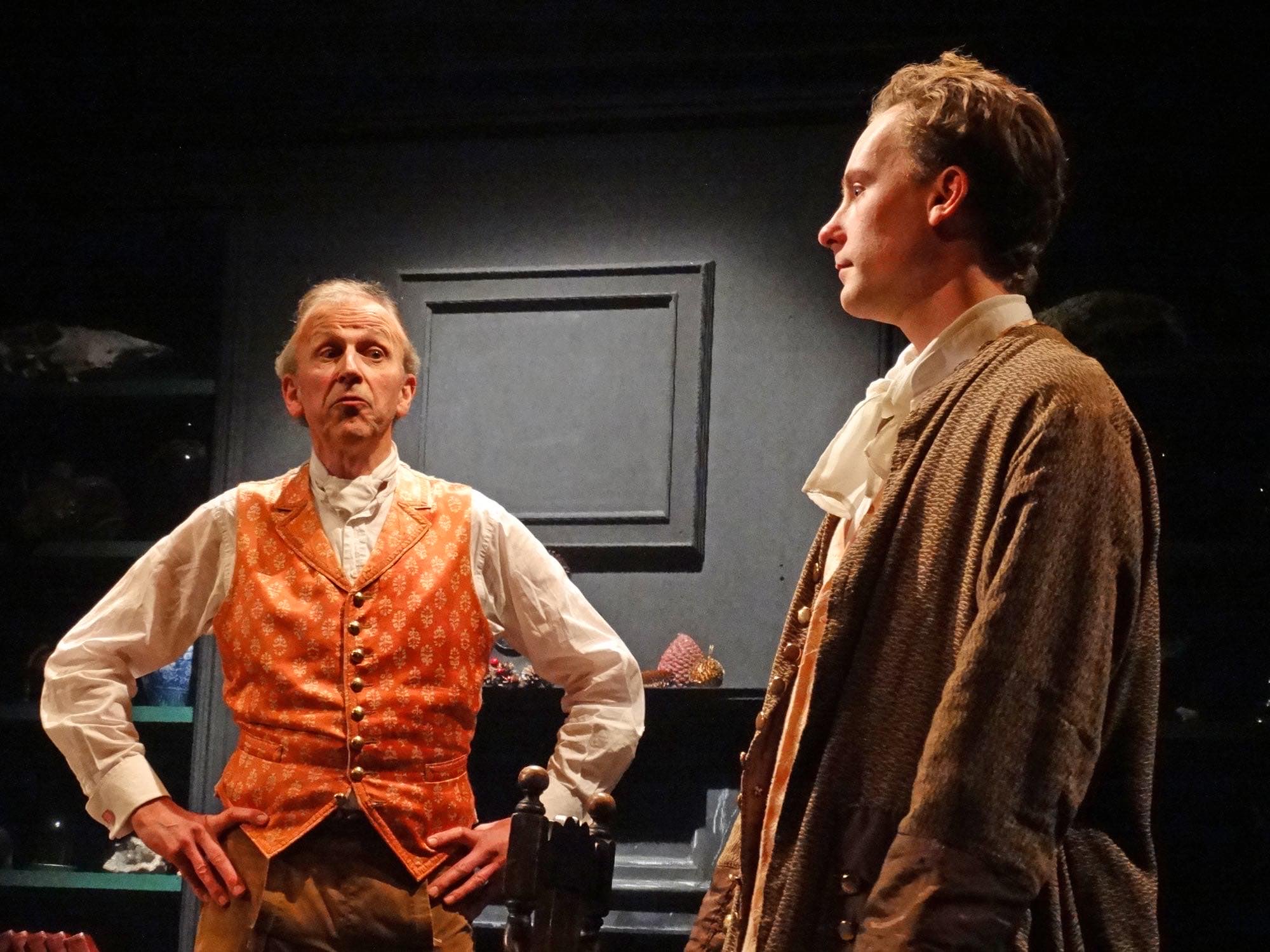
Jeremy Crow plays scientist Fenwick with the air of an artful boffin, self absorbed, self confident and arrogant, much to the detriment of his relationships with those around him and in particular with his wife. In contrast as Sam he is definitely the underdog, his passion for literature is posed as having little importance in contrast to his wife Ellen.
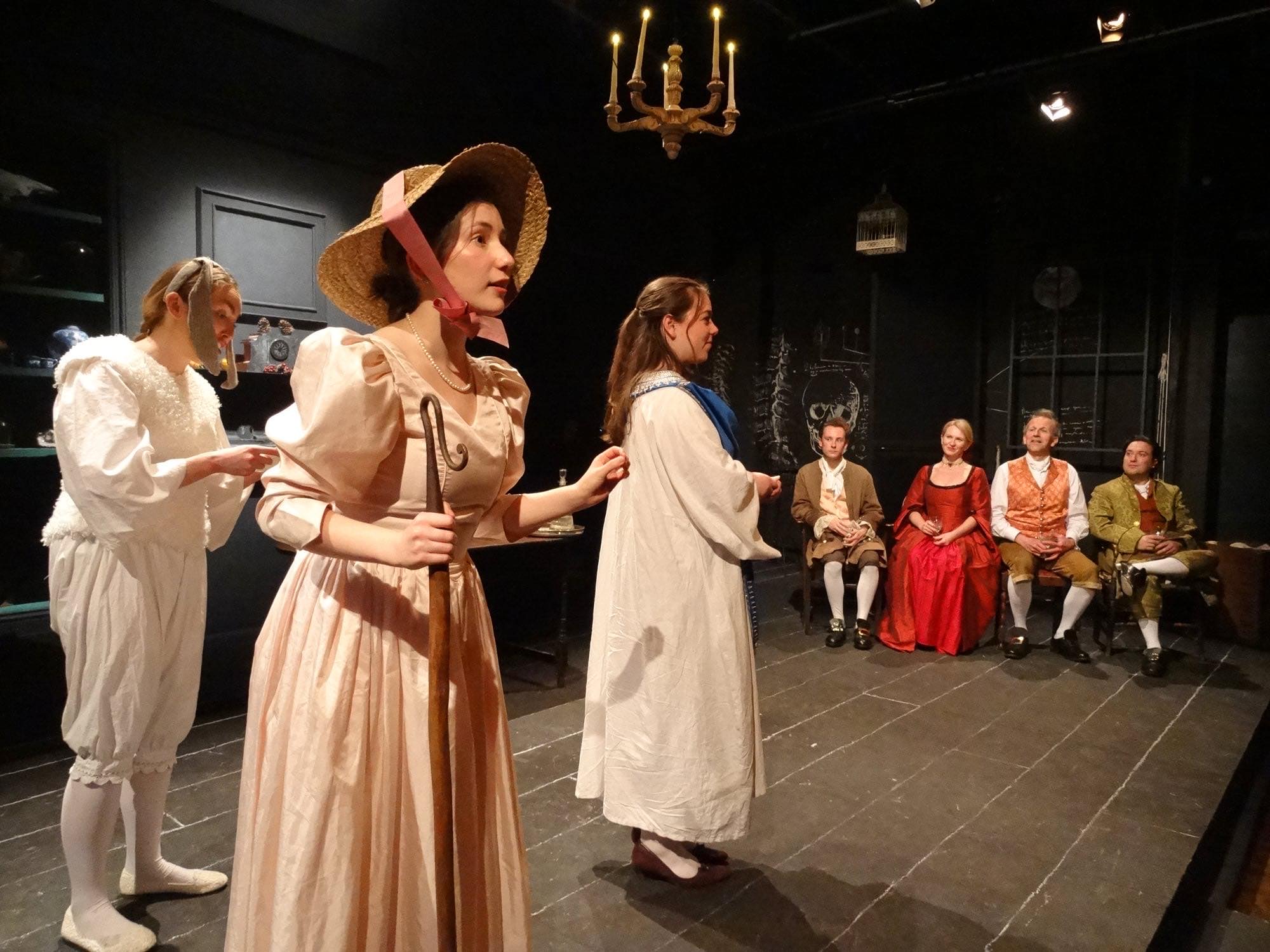
Ellen is played by Laura Wittham, a scientist challenged by an opportunity to work in the field of genetic programming. It is a fine performance but one that is hampered by being under-written, how I wanted to know more about her work and her dilemma. And this proves to be the weakest part of Shelagh Stephenson’s play. Wittham however has plenty to work with in her role as Fenwick’s wife Susannah, the undervalued spouse who gradually finds her voice and expresses her sadness and it proves to be one of the great moments in the drama.
Maria Evans plays the Fenwick daughter Harriet, a feisty young woman determined not to be dismissed by the cultural conventions of the age or be bound by marriage, and the role whilst importantly dealing with concepts of female emancipation also has comedic content. Her second role as Kate deals with the boundaries of modern scientific ethics but again, the subject is only briefly explored.
The other Fenwick daughter Maria is the gentle embodiment of romantic love and ultimately disappointment and the role gives her some of the best speeches of the whole as she reads letters from her distant and deceitful fiancé. Esther Dracott is deliciously sweet to start and then beautifully bitter and sour when the deceit is exposed.
Morgan Corby plays the delicate and at times fragile Roget, a voice of reason, a gentle soul who has the most marvellous speech, a catalogue of words ending with the ‘C’ word that reveals his identity as the great lexicographer and the only real character in the drama. Corby’s strength in the role is his stillness, his quiet observation until he can remain quiet no more.
And that quiet is ended when he confronts Armstrong, the scientist whose ethics go beyond questionable. Benjamin Baeza’s performance is powerfully robust, cavalier, arrogant and self satisfied and also has elements of the comedic, and that humour, instilled in the character, heightens his terrible nature. In the modern setting he plays electrician Phil, a soft natured and gently spoken Geordie whose presence in the house is strangely knowing and yet naive.
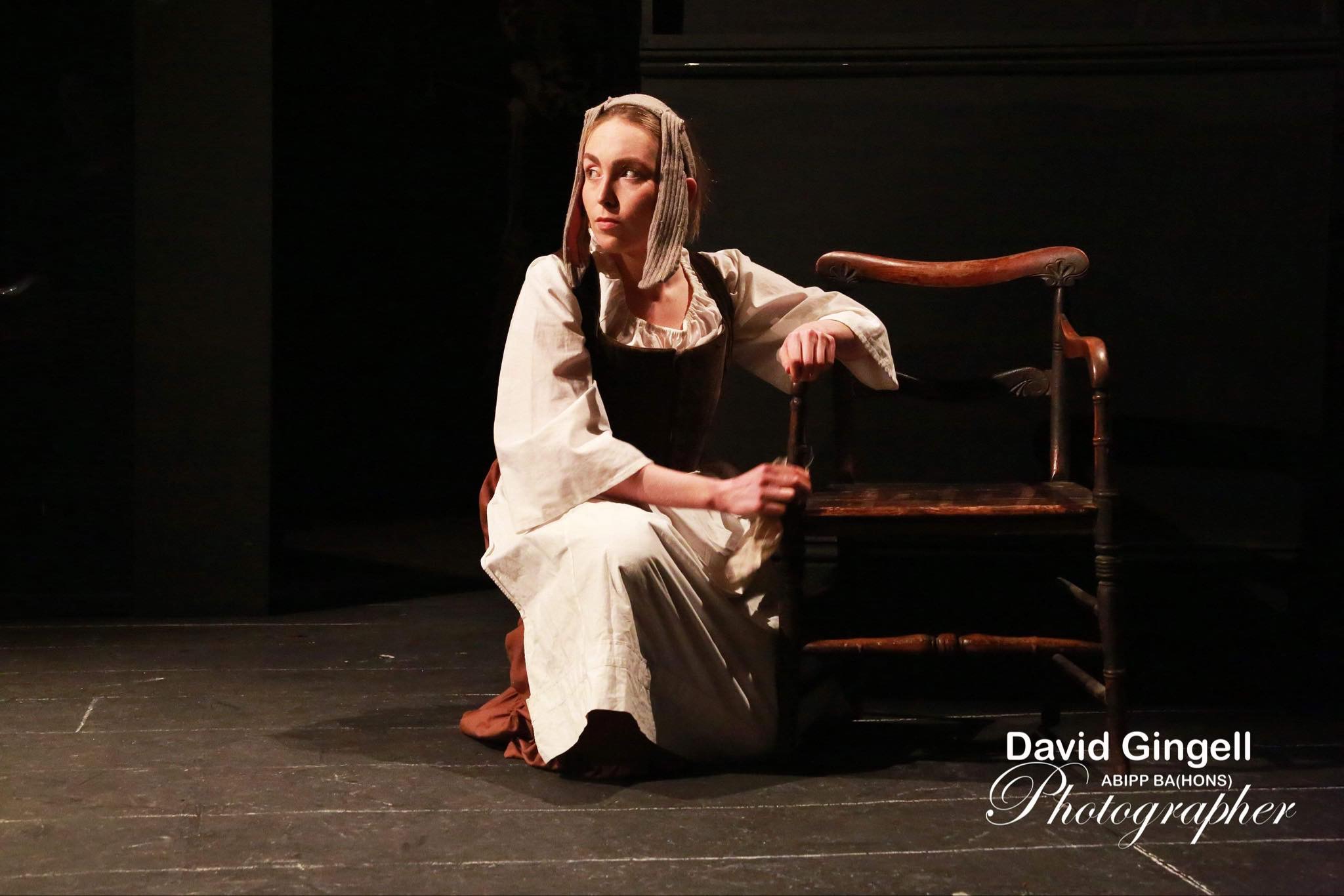
The stand out performance of the whole has to be Rose O’Kane as Isobel. Isobel is the servant in the Fenwick house, an intellectually vibrant but unrespected Scottish girl whose disability, an unseen physical deformity, links all the threads of the play. O’Kane is mesmeric In the role, her quiet performance contrasting beautifully with the bombastic nature of her “betters”. It is the real tragic element of a very clever piece of writing and the one best explored.
It would be wrong not to praise the set and costumes, this is a piece of design that works on every level, simplistic on one level and then richly embellished with, behind a gauze, stunning and lavish dressings, the black walls chalked with fine scientific drawings and the whole put together with real artistry and skill by John Everett and director Sam Chittenden. The whole is also scored with atmospheric music played live from behind that gauze by Bertie Purchesse, Juliet Rowley and musical director Steve Hoar.
Once again New Venture Theatre has programmed a production of exceptional quality, with a stunning cast and creative team.
Andrew Kay
19 April
New Venture Theatre
Rating: 






















